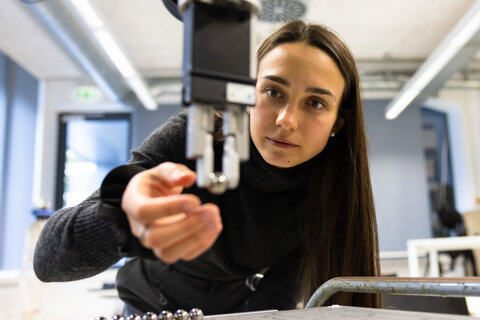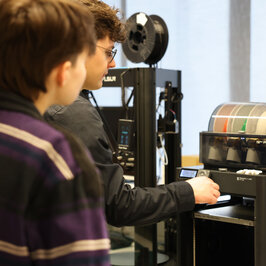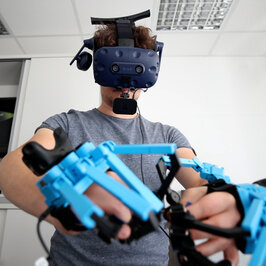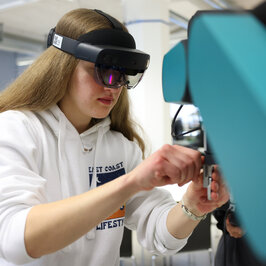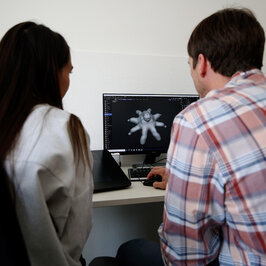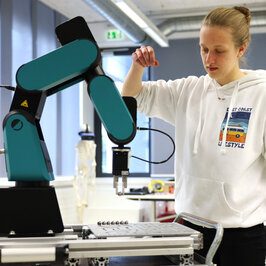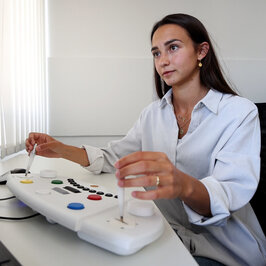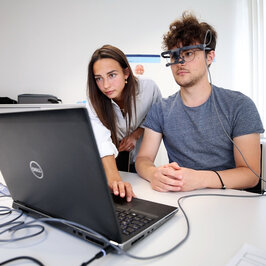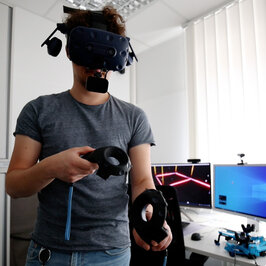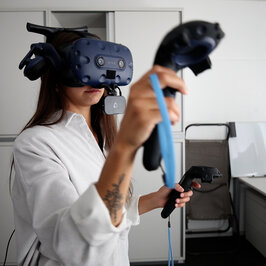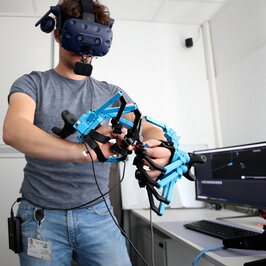Programme content and structure
Academic focus
In this master's degree programme, we focus on all aspects that lead to human-centered technology and system design and thus to optimal human-machine interaction. This enables you to make well-founded decisions taking into account technical, psychological and ethical principles. Our students deepen their analytical, psychological, design and engineering knowledge. The focus is on ergonomics, usability, engineering psychology and user experience. Over the course of three standard semesters, we impart in-depth knowledge of ergonomic and human-centered product design, qualitative and quantitative empirical research as well as usability and user experience evaluation. During your studies, you'll also take a free human factors specialisation module and a human factors project. Here you can focus on a specific industry or take a holistic approach to a current human factors topic as a group. The master's thesis is completed in the third semester. The master's in Human Factors at the Tuttlingen Campus is awarded the academic degree of Master of Science (MSc).
Entry requirements
- Technology (e.g. mathematics, physics, construction technology, automation technology, production technology, etc.)
- Psychology (general and biological psychology, psychological methodology and statistics, work and organisational psychology, etc.)
- Information processing (computer science, programming, etc.)
- Human factors (engineering psychology, ergonomics, user-centered design, human factors engineering, etc.)
What's covered
HF Study and Examination Regulations (SPO):
Admission Regulations:
HF Module handbook:
HF focus areas modules:
- Download file:Subject-specific catalogue
- Download file:Human Factors Engineering in Medical Technology
- Download file:Human Factors of Automated Driving
- Download file:Prototyping Interfaces
Your career prospects
Bright prospects
The master's degree programme in Human Factors prepares you for a career in research and development and for taking on management responsibilities. Our graduates take a holistic view of development processes and place the human factor at the centre of their work. Positioned at the interface, you consider the functionality, ergonomics, safety, usability, sustainability and innovative capacity of products and work systems and incorporate the "user experience" into the design. With your interdisciplinary expertise, you are in high demand across all industries. Human Factors is therefore your master plan for the future!
Possible future career paths
- Empirical research, user research and user requirements engineering
- Design and evaluation of user interfaces
- Human factors and usability engineering in the capital goods sector (e.g. mechanical production systems)
- User experience (UX) design of interactive products
- Consulting and services in the field of human-machine interaction
- A doctorate at one of our partner universities or as a cooperative doctorate at the Faculty II: Engineering & Technologies opens up further prospects for you.
Events
Further dates and eventsUnfortunately, there are currently no events planned that we can display here. We have compiled an overview of all planned events in the event calendar.
Your key contacts
Your future is important to us. Contact us for advice.

Engineering Psychology (BSc) (IP)
Human Factors (MSc) (HF)

Engineering Psychology (BSc) (IP)
Human Factors (MSc) (HF)
